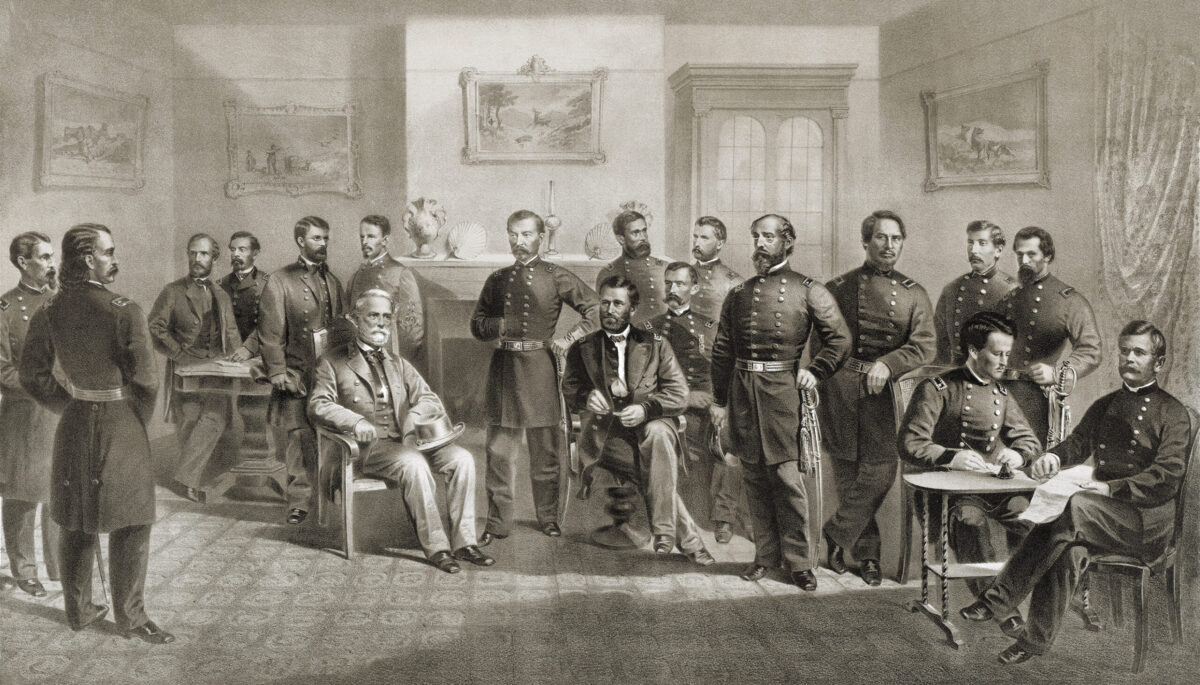I still remember the first time I ever went to Appomattox. I couldn’t have been more than 8, but even at that age I could sense that there was something different about the place. On the surface, it didn’t seem to have quite the same excitement factor for a young pup that other Civil War sites did—there were no dramatic stories of brilliant flank attacks, thundering artillery duels or gallant charges—but I found that ground to be entirely compelling nonetheless. It was something I couldn’t really put my finger on at that tender age—and something that still strikes me about Appomattox when I’m there today (at a not-so-tender age).
Certainly Appomattox shares commonalities with other Civil War parks. It is both naturally beautiful and educational, and not only offers the visceral thrill of walking the same ground as the Civil War soldier but also the opportunity to gain a deeper understanding of a momentous event in history by experiencing the place in person. But Appomattox is unique among Civil War sites as well. Maybe it’s the peacefulness of the place, maybe it’s the absence of a forest of signs and monuments, or maybe it’s the powerful juxtaposition of finality and uncertainty that still hangs in the air there.
For all intents and purposes, the Civil War ended with the surrender of the Army of Northern Virginia at Appomattox Court House. For a nation that had been devastated by years of brutal warfare, this end was undoubtedly welcome. It meant, for the most part, an end to the killing, the dislocation of so many friends and family members and the cataclysmic disruption of everyday life.
For Federal soldiers, it meant victory, an outcome that had been anything but certain for four long years. But even in victory there were questions that were neither easy to ask nor answer, questions on a far more personal level than speculation about what was to become of the nation. What did the future hold for the thousands of men who found themselves over the course of, and in the context of, that war—men who had sometimes failed in every other capacity in life? What would become of the bonds that had been formed and that particular brotherhood which only those who have lived, fought and bled together on the front lines can truly understand? The elation the soldiers undoubtedly felt about the prospect of returning to a normal life must have been tainted in many cases by legitimate concern about how easy it was going to be to do so. Southerners naturally had to deal with all the same personal questions while at the same time wrangling over the broader issues that defeat embodies. For the Rebels, Appomattox was the death of a dream—a dream of independence and of the preservation of a way of life. Yes, that way of life included slavery for a small minority of Southerners, just as it had for a small minority of Northerners and Southerners during the dream of American independence in the previous century. But slavery was not what the dream of the Confederacy was about. Appomattox brought some degree of relief to the war-weary Southern mind, but it also brought disillusionment, disappointment and no small amount of anxiety.
If April 9, 1865, is one of the most important days in our history, then it seems logical to me that Appomattox represents some of this nation’s most significant ground. I sensed this when I was 8, and I’ve believed it ever since. No matter what you may feel when you’re there—the thrill of victory, the agony of defeat or any number of other emotions—I’ll wager that you will feel something, and feel it strongly. I encourage you to get to Appomattox as soon as possible and find out for yourself.
Originally published in the April 2006 issue of Civil War Times.





